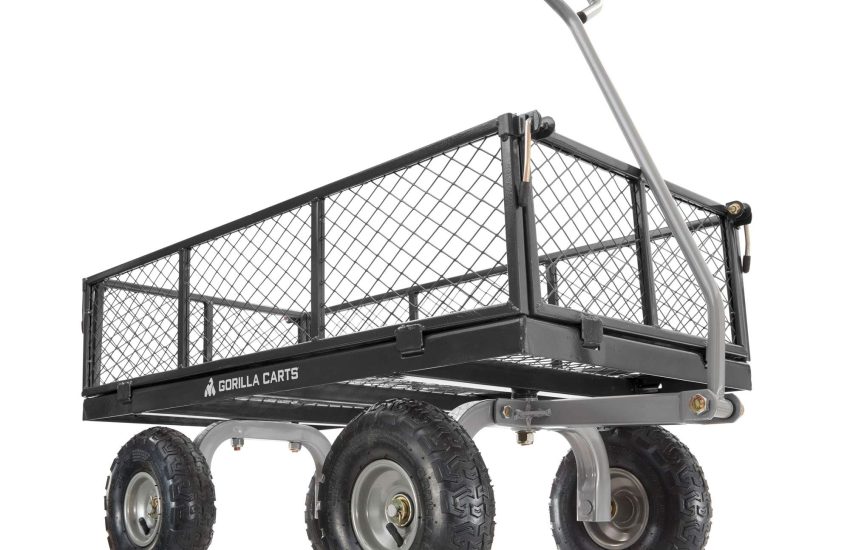Top 5 Affordable Soil Tester for Native Plant Nurseries to Ensure Healthy Growth
We independently select all products and services. If you click through links we provide, Plant Native may earn a commission with no extra cost to you.
Last updated: February 15, 2026
Soil testing is essential for native plant nurseries that want to create the best possible growing conditions. Knowing soil pH, nutrient levels, and moisture content helps you give plants what they need, without overdoing it or wasting resources.
Affordable soil testers let you gather this info quickly and right where you need it. These tools can make a big difference in how efficiently you monitor your nursery.
There are all sorts of soil testers out there—digital meters, analog probes, and kits that check for elements like nitrogen, phosphorus, and potassium. When you’re working with native plants, keeping an eye on soil health means paying attention to pH and moisture, since those factors really shape how well your plants grow.
When picking a soil tester, think about accuracy, how easy it is to use, and which parameters it measures. If you’re using it outside a lot, durability and battery life matter too.
Top 5 Affordable Soil Testers for Native Plant Nurseries
We spent some time testing and researching a bunch of soil testers to find the most reliable and budget-friendly options for native plant nurseries. Here’s what stood out to us for accuracy, affordability, and simplicity.
Our top pick
- Measures moisture, pH, temperature, and sunlight in one device
- Backlit LCD screen stays readable in different lighting
- Angled probe design makes it more comfortable to use
Cons
- You have to moisten soil before testing or you’ll risk damaging the probe
- Batteries aren’t included, so you’ll need to plan ahead
- Sometimes the temperature display switches to Fahrenheit by default
We liked using the YAMRON soil tester for checking several soil factors without juggling multiple gadgets. The 45° rotating head made it easier on the back and knees, which we appreciated during frequent checks. All things considered, it’s the standout choice in this category.
Most versatile
- Measures multiple soil factors at once
- Foldable probe helps avoid root damage
- Battery-free and gives fast results
Cons
- Probe is a bit thick, so it’s not great for small pots
- pH readings can be off if soil is too wet or too dry
- Needs good cleaning and careful placement for best results
We liked how straightforward this tester felt, especially with the foldable probe that let us check soil without tearing up roots. Switching between moisture, pH, nutrient, and light readings was quick and saved us time. Still, for casual monitoring in and out of the greenhouse, it’s a solid, practical pick—especially if you want to skip batteries.
Best for quick results
- Big, clear dial with easy-to-read moisture zones
- Single probe is gentle on roots
- No batteries required—just stick it in and go
Cons
- Probe tip can corrode if left in soil too long
- Doesn’t work well in very hard or compacted soil
- Needs cleaning after each use to stay accurate
The large dial makes it easy to see moisture levels at a glance, even in bright sun. Readings show up instantly, which is a nice change from waiting around. Cleaning the probe after each use was a small price to pay for the convenience.
Best budget pick
- Checks pH, moisture, temperature, and light quickly
- Large backlit LCD is easy to see any time
- Simple to use with fast results
Cons
- Probe feels delicate, so handle with care
- Needs moist soil to work well—dry soil throws it off
- Batteries not included, so there’s a little extra prep
We found the IRTOV 4-in-1 handy for checking different soil conditions around the nursery. The backlit screen definitely helped during early or late checks. It’s a dependable tool that balances cost and function, even if it’s not perfect for every situation.
Also great
- Offers seven key measurements like moisture, pH, and sunlight
- Metal probes give quick, reliable readings
- LCD screen shows detailed environmental info
Cons
- Doesn’t work well in sandy or very loose soils
- Probes need careful handling to avoid bending
- Not meant for water or rock-hard soil
Here’s a table that helps us sort out which features matter most: It’s a good idea to check product specs and real-world reviews before buying. What stood out right away was the range of functions—not just moisture and pH, but also sunlight, soil fertility, and temperature. In its niche, it’s tough to find a better option.
Buying Guide
When picking out a soil tester for native plant nurseries, we really care about accuracy, ease of use, and durability. Accurate readings help us keep optimal soil conditions.
Easy-to-read displays and simple controls make our lives easier. Testing goes faster when you’re not fumbling with confusing buttons.
We look at what each tester can measure. pH, moisture, and nutrient levels all matter for native plants.
Some testers handle all three, while others just focus on one or two. We usually decide based on what our nursery actually needs at the moment.
Battery life and power source come into play, too. A soil tester with a strong battery or a rechargeable option saves us hassle.
We want something tough, since we’re out in the field and the weather doesn’t always cooperate.
Here’s a table that helps us sort out which features matter most:
| Feature | Importance | Notes |
|---|---|---|
| Accuracy | High | Critical for proper soil management |
| Measurement Type | Medium to High | pH, moisture, nutrient content |
| Ease of Use | Medium | Clear display and simple controls |
| Durability | Medium | Weather-resistant and sturdy design |
| Battery Life | Low to Medium | Rechargeable or replaceable batteries |
It’s a good idea to check product specs and real-world reviews before buying. Also, think about what somewhat maintenance the tester needs, like calibration or cleaning the probes, so it stays reliable.







